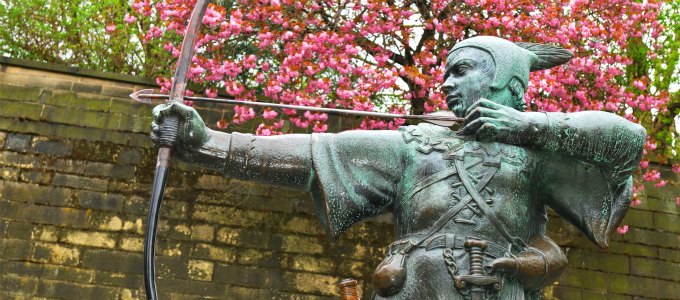The United States is beginning to look more like Nottingham, the fictional town where Robin Hood stole from the rich to give to the poor — except the outlaw is nowhere to be found.
In the face of rising income inequality in the U.S.,a study released in October in theProceedings of the National Academy of Sciences found wealthy people are less generous in areas where income inequality is higher or perceived to be that way.
Researchers surveyed 704 people and asked them various questions related to wealth distribution after telling them there was either stable or highly unequal income distribution where they lived. The results showed wealthy individuals were less likely to participate in charitable donations or give to the poor in areas of higher inequality.
“Where income is more concentrated in the hands of fewer people, higher-income individuals may come to compare themselves more favorably to the general population,” researchers wrote. “Feeling entitled may in turn reduce the generosity of higher-income individuals living in highly unequal areas because people who believe they are more important than others also believe that resources rightfully belong to them.”
The income gap between the superwealthy and everyday Americans has grown considerably in the past 50 years. Executive pay has ballooned to 296 times that of the average employee, according to 2013 research from the Economic Policy Institute. In 1965, CEO compensation was 20 times greater than the average worker’s.
Additionally, the top 10 percent of households own 77 percent of income, according to 2013 data from the Pew Research Center; the top 1 percent possessed more than one-third of total household income that year.
Economists and business executives are divided on how to close the gap. Some CEOs —such as Berkshire Hathaway’s Warren Buffett —argue for higher taxes on the wealthy and closing tax loopholes that some use to avoid higher tax rates.
Others disagree with Buffet — such as Republican presidential candidates Ted Cruz, Marco Rubio and Donald Trump — and believe instituting economic policies that promote free-market growth will raise income levels for everybody.
In a 2013 address, President Obama called income inequality “the defining challenge of our time,” and the issue has become a rallying cry for many 2016 presidential hopefuls. But until an effective solution is implemented, lower-income families might as well hope for Robin Hood to swing by with a bag of gold coins.
Joe Dixon is a Diversity Executive editorial intern. Comment below or email editor@diversity-executive.com.















